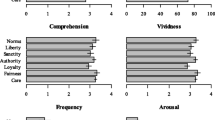Abstract
This paper defends moral realism against Sharon Street’s “Darwinian Dilemma for Realist Theories of Value” (this journal, 2006). I argue by separation of cases: From the assumption that a certain normative claim is true, I argue that the first horn of the dilemma is tenable for realists. Then, from the assumption that the same normative claim is false, I argue that the second horn is tenable. Either way, then, the Darwinian dilemma does not add anything to realists’ epistemic worries.
Similar content being viewed by others
Notes
A terminological note; I will follow Street in casting the argument in terms of evaluative beliefs and facts. This term covers both the moral, and also what is often called practical: in other words, it covers facts about value (goodness and badness), facts about (normative) reasons, facts about which actions are right and wrong, facts about what we ought to do, and facts about what ought to be the case.
I owe the use of the phrase “pre-established harmony” in this context to David Enoch (2009). Enoch offers a similar response to the Darwinian dilemma, but his argument is based on the assumption that survival is good, and he does not employ the separation-of-cases strategy that is central to my argument.
One might think that, similarly, there are relatively common moral views which reject the goodness of pleasure and the badness of pain. But I do not think that these views really fail to judge pain intrinsically bad and pleasure intrinsically good. For instance, if I understand Buddhist doctrine correctly, pleasure is taken to be bad because it helps bind us to a mode of existence that prevents the cessation of pain. In certain ascetic versions of Christianity, pain is taken to have a good and pleasure a bad effect upon the soul.
In fact I believe defending conditional claims of this kind is the best way to answer scepticism generally, but that’s a topic for another day.
References
Enoch, D. (2009). The epistemic challenge to metanormative realism: How best to understand it, and how to cope with It. Philosophical Studies (electronic pre-print).
Nagel, T. (1986). The view from nowhere. Oxford: OUP.
Shafer-Landau, R. (2003). Moral realism; a defence. Oxford: OUP.
Street, S. (2006). A Darwinian dilemma for realist theories of value. Philosophical Studies, 127, 109–166.
Acknowledgements
Many thanks for helpful comments to Sharon Street, Thomas Nagel, David Velleman, Andreas Carlsson, an anonymous referee for Philosophical Studies, and participants at the Moral Philosophy Club at CSMN, University of Oslo. Special thanks to Derek Parfit for crucial encouragement and discussion.
Author information
Authors and Affiliations
Corresponding author
Rights and permissions
About this article
Cite this article
Skarsaune, K.O. Darwin and moral realism: survival of the iffiest. Philos Stud 152, 229–243 (2011). https://doi.org/10.1007/s11098-009-9473-8
Published:
Issue Date:
DOI: https://doi.org/10.1007/s11098-009-9473-8




